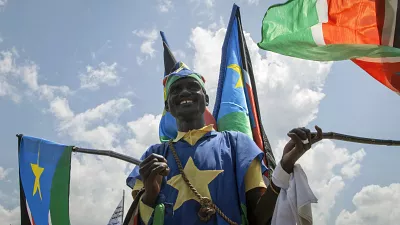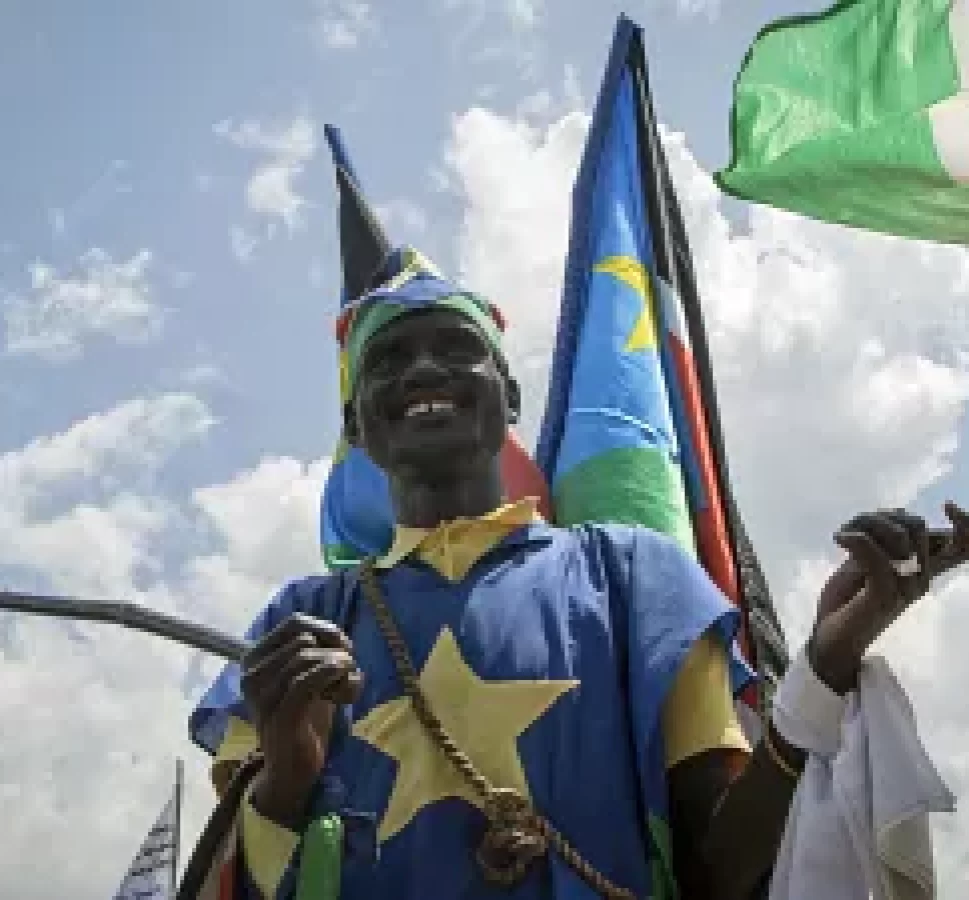
While South Sudan’s cultural diversity was on show at an International Peace Day event in Juba, it was the collective desire for peace, democracy and a brighter future that attracted most attention.
“With peace, I can go to school, I can live without the stress I had before, including losing my relatives. That is the good news of the peace that I am enjoying now, even though everything is not all well. I want peace in South Sudan,” said Everlyne Batista, a South Sudanese performer
Politics dominated discussions, particularly the decision by the country’s leaders to, yet again, extend the transitional period of the government and delay elections.
“We are not suffering because peace requires millions of dollars. We are suffering because we need political leaders to say enough is enough to violence. That doesn’t need one SSP [South Sudanese Pound]. We cannot spend millions of dollars to buy peace. Why are they spending millions of dollars to buy bullets and buy guns, why can we not spend millions of dollars on ensuring the peace agreement is delivered?” said Edmund Yakani, from the Community Empowerment for Progress Organization.
Peace partners stressed their disappointment at the latest extension, despite significant financial and other international support, explaining why they did not support a resolution on the issue at a recent meeting with political leaders.
“It was a signal of frustration and a message that this can’t be business as usual. A transition cannot go on forever and we need to see South Sudan, in the interests of peace, moving forward with its transition, forward with its democratization, forward with listening to its people in the formation of a permanent constitution. It is a question of a social contract and nation building,” said Timo Olkkonen, the European Union Ambassador.
First Vice-President, Dr. Riek Machar Teny cited many reasons for the extension, including the need to unify security forces, facilitate the return of millions of South Sudanese refugees, resolve intercommunal conflict, determine the governance system, and agree on a permanent constitution.
“It is not for being in power. This is true. Many of us would want to see that the people of South Sudan elect their leaders but in an environment which is conducive for them to exercise their right. If we drive them into an election which is not conducive, in the end, we will be blamed for this because we know our people,” said Riek Machar.
The Special Representative of the UN Secretary-General highlighted the risks created by the extension, but also the opportunities.
“While this means that the people of this country are, yet again, being asked to show their patience in waiting for the long-promised peace and democracy benchmarks, this development does recognize the risk of renewed conflict, and the political vacuum caused as a result of the want of electoral preparations.
But it also allows further opportunity for nation building and we recognize that the mountain that must still be climbed is steep. Urgency is required. Not a pause,” said Nicholas Haysom, the Special Representative of the Secretary-General and Head of the United Nations Mission in South Sudan.
He stressed that peace can only be secured and sustained when South Sudan’s leaders put the interests of their people first and demonstrate a common purpose, shared aspirations and political will.






